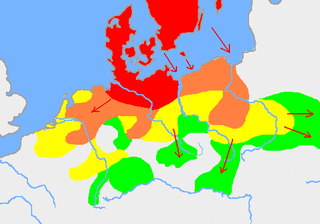
The 3rd century BC started the first day of 300 BC and ended the last day of 201 BC. It is considered part of the Classical era, epoch, or historical period.
This article concerns the period 229 BC – 220 BC.

This article concerns the 200 BC decade, that lasted from 209 BC to 200 BC.
This article concerns the period 269 BC – 260 BC.
This article concerns the period 259 BC – 250 BC.
This article concerns the period 249 BC – 240 BC.
This article concerns the period 239 BC – 230 BC.

Year 250 BC was a year of the pre-Julian Roman calendar. At the time it was known as the Year of the Consulship of Regulus and Longus. The denomination 250 BC for this year has been used since the early medieval period, when the Anno Domini calendar era became the prevalent method in Europe for naming years.
Year 205 BC was a year of the pre-Julian Roman calendar. At the time it was known as the Year of the Consulship of Scipio and Dives. The denomination 205 BC for this year has been used since the early medieval period, when the Anno Domini calendar era became the prevalent method in Europe for naming years.
Year 222 BC was a year of the pre-Julian Roman calendar. At the time it was known as the Year of the Consulship of Marcellus and Calvus. The denomination 222 BC for this year has been used since the early medieval period, when the Anno Domini calendar era became the prevalent method in Europe for naming years.
Year 223 BC was a year of the pre-Julian Roman calendar. At the time it was known as the Year of the Consulship of Flaminus and Philus. The denomination 223 BC for this year has been used since the early medieval period, when the Anno Domini calendar era became the prevalent method in Europe for naming years.
Year 225 BC was a year of the pre-Julian Roman calendar. At the time it was known as the Year of the Consulship of Papus and Regulus. The denomination 225 BC for this year has been used since the early medieval period, when the Anno Domini calendar era became the prevalent method in Europe for naming years.
Year 227 BC was a year of the pre-Julian Roman calendar. At the time it was known as the Year of the Consulship of Flaccus and Regulus. The denomination 227 BC for this year has been used since the early medieval period, when the Anno Domini calendar era became the prevalent method in Europe for naming years.

Philopoemen was a skilled Greek general and statesman, who was Achaean strategos on eight occasions.

The Battle of Telamon was fought between the Roman Republic and an alliance of Celtic tribes in 225 BC. The Romans, led by the consuls Gaius Atilius Regulus and Lucius Aemilius Papus, defeated the Celts led by the Gaesatae kings Concolitanus and Aneroëstes. This removed the Celtic threat from Rome and allowed the Romans to extend their influence over northern Italy.

Wang Jian was a notorious general from the State of Qin during the Warring States period. Under his command, the Qin army conquered the states of Zhao, Yan, and Chu. He is considered one of the four greatest generals of the late Warring States period, along with Bai Qi, Lian Po and Li Mu.
Aneroëstes was one of the two leaders of the Gaesatae, a group of Gaulish mercenaries who lived in the Alps near the Rhône and fought against the Roman Republic in the Battle of Telamon of 225 BC. He and his colleague Concolitanus were hired by the Boii and Insubres in response to the Roman colonisation of the formerly Gallic region of Picenum. After some initial success in Etruria, when faced with the army of the consul Lucius Aemilius Papus, Aneroëstes persuaded the Gauls to withdraw, but they were cut off at Telamon by the other consul, Gaius Atilius Regulus, and forced to fight a pitched battle.
The Gaesatae or Gaesati were a group of Gallic mercenary warriors who lived in the Alps near the river Rhône and fought against the Roman Republic at the Battle of Telamon in 225 BC.
Lord Changping was an important military commander and lord of Qin, that later seceded from the state of Qin and died as the last king of Chu in the last days of the Warring States period of ancient China.
Li Xin (李信), courtesy name Youcheng (有成), was a general of Qin during the Warring States era. Alongside Wang Jian, Wang Ben, and others, Li Xin served under Qin Shi Huang in his conquest of the six Warring States. He is also a fifth generation ancestor of the Han dynasty person Li Guang.





